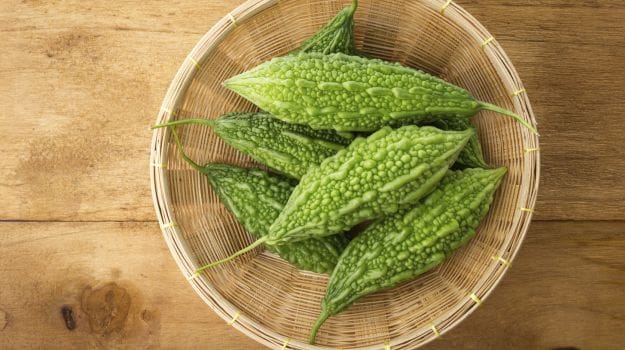

Diabetes is one of the most commonly found disorders affecting millions of people across the globe. Besides negatively impacting the blood sugar and insulin levels of the body, diabetes is the cause of the onset of a lot of other serious complications. Although these facts might seem scary, diabetes isn't something uncontrollable. With regular exercises, an appropriate diabetic diet and the inclusion of various anti-diabetic foods and herbs, diabetes can be controlled. This article talks about some important anti-diabetic foods and herbs, and how they play an instrumental role in preventing the progression of the disease. However, whether a particular herb suits your body or not, must be decided after proper medical consultation.
5 Of The Important Anti-Diabetic Foods And Herbs
Now that you know you've been diagnosed with diabetes, you must start working towards its control immediately. Delays will only aggravate the condition leading to several complications. The following five foods and herbs may help you manage your blood sugar levels, based on your body type and also the extent to which diabetes has progressed.
1. Bitter Melon
Bitter melon, also known as Momordica Charantia, is a medicinal fruit found to be helpful in reducing the blood sugar levels in the case of some diabetics. It can be taken in various forms including juice, seeds, supplementary form, or in the form of blended vegetable pulp. Bitter melon can be either eaten or consumed in liquid form. However, most of the diabetics prefer taking it in the form of supplements, as eating or drinking it may taste weird or unpleasant.
2. Cinnamon
Cinnamon is a popular herb, or you may say more of a spice that originates from the bark of a tree. It can be used as a substitute for sugar to add sweetness to something. This is the reason why it is a popular pick amongst the Type-2 diabetics. Cinnamon is helpful in multiple ways. It helps in improving the levels of glucose, digestion, insulin, insulin sensitivity, blood pressure levels, antioxidant status, and many others.
3. Fenugreek
Fenugreek is known to help reduce blood sugar levels. It is rich in fibres and chemicals that reduce the rate of digestion of carbohydrates, and sugar. Researchers have found that the intake of fenugreek in the right quantities helps reduce cholesterol levels and also helps to increase the insulin levels, thereby resulting in a reduction in the blood sugar levels. Fenugreek can be consumed in many different ways such as adding it to warm water, add it as an herb in a few food stuffs, consume it in its powdered form by grinding it, or in the capsule form. Seek consultation from an established diabetes expert or doctor to know the right form of consumption in your case.
4. Ginger
Ginger has been in use for a very long time to cure and prevent a lot of medical conditions. A review was done in the year 2015, which suggested ginger's usefulness in managing diabetes. Based on the results, it was found that ginger helped reduce blood sugar levels. At the same time, it was observed that ginger doesn't help reduce blood insulin levels. Of course, establishing ginger in the league of the most effective anti-diabetic food yet requires a lot of research. Ginger too can be taken in multiple ways including capsule, through tea, adding chopped ginger or its powder to food, or by consuming it in liquid form in ginger ale.
5. Aloe Vera
Aloe vera is well-known for its skin benefits. However, its benefits aren't limited to the skin, but extend to Type-2 diabetes as well. Aloe vera helps safeguard and repair the insulin-producing beta cells in the pancreas. Perhaps, this is on account of the antioxidant effect of the herb. Aloe vera can be either consumed in capsule form, or by adding the juiced pulp to a smoothie or a drink.
The effectiveness of herbs may vary from case to case, and therefore, it is necessary to ensure that the right herbs are consumed in the right quantities. Consult your doctor before you try out a new herb.





MPTh, Cardiovascular And Pulmonary Physiotherapist Neuro Physiotherapist, 1 yrs, Pune

